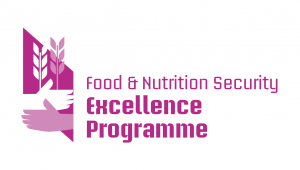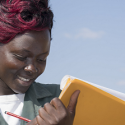Students selected for FNS Excellence Programme
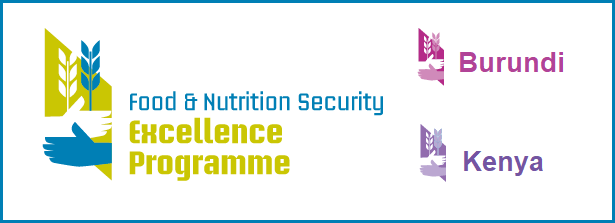
On World Food Day 2019 (October 16) the Kick-Off of the Food & Nutrition Security (FNS) Excellence Programme will take place. In total, 32 Bachelor students from Dutch higher education institutes have been selected to work on real-life cases of Dutch embassies in Africa. The FNS Excellence Programme is carried out jointly by the Ministry of Foreign Affairs, Ministry of Agriculture, Nature and Food Quality, and the Food & Business Knowledge Platform.
The Programme
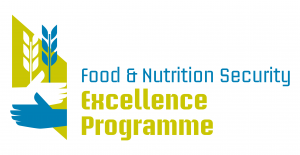 The FNS Excellence Programme was initiated for students to gain practical experience by working on real-life Food and Nutrition Security related challenges that the Embassies of Kenya and Burundi face in their programmes.
The FNS Excellence Programme was initiated for students to gain practical experience by working on real-life Food and Nutrition Security related challenges that the Embassies of Kenya and Burundi face in their programmes.
The programme will be running for three months, from mid-October to mid-January. During the course of the programme, students will receive masterclasses from Dutch FNS experts, coaching sessions from a professional coach and the participating embassies. Furthermore, they will have a chance to get to know the Ministries of Foreign Affairs and of Agriculture, Nature and Food Quality. During a closing event, the teams will pitch their final ideas for the embassies and Dutch FNS experts.
The Students
In total, 32 Bachelor students have been selected to join the FNS Excellence Programme. The students are enrolled at different (applied) universities in the Netherlands, including the Wageningen University, Van Hall Larenstein and Aeres Applied University. The students have different study backgrounds, but all with a focus on food and international development. Eighteen students will work on the case of the embassy of Burundi, divided over four groups. The other 14 students are working in three groups on the case of the embassy of Kenya.
The Kick-Off
During the Kick-Off on October 16, students will have a chance to meet and get to know each other and get an introduction to their cases by the embassies of Kenya and Burundi. A first masterclass will be held, hosted by MDF Training and Consultancy. This first masterclass will focus on how to tackle the assignment and how to write a work plan. During the afternoon, students have the option to either take part in the Youth World Food Day, of join a session during the Professionals World Food Day event “Circular Economy for Food Security”.
Background information: Cases
Burundi – Burundi is one of the least developed countries in the world and its population suffers from very high levels of malnutrition. The Food & Nutrition Security programme of the EKN in Burundi is centered around the so-called PIP approach (Plan Intégré Paysan or Integrated Farm Plan). This approach focuses on helping farmer households and communities move towards resilience-based management. By creating a farm development plan for the next five years, farmers become intrinsically motivated to invest in their own future, and thereby to invest in their resources, in their economic pursuits and in themselves (education, health). Empowerment, integration and collaboration are key to this approach. However, these improved practices do not automatically lead to a better nutritional status of households and communities. The embassy therefore wishes to explore in what way nutrition could be integrated in the PIP approach when they start working with farm households in their programmes. The teams are challenged to develop ideas on how the farm households in Burundi could be assisted in undertaking activities to improve the nutritional status of its household members in a way that suits the PIP approach.
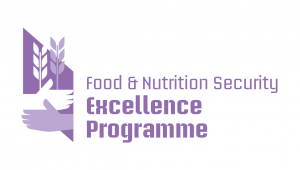 Kenya – In its development and trade programmes, the Netherlands has been active in food security in Kenya for over 30 years. The Netherlands has brought substantial improvements in the value chains of horticulture, aquaculture and dairy in Kenya. However, a cross-cutting bottleneck for the actual implementation of some of the new innovative (Dutch) technologies and approaches that the Netherlands has supported, is the lack of financing for small and medium scale commercial farmers; especially women and youth. The high risks for financing institutes, such as the risk of crop failure and the specific financing cycle needed for farming, are all obstacles for farmers to get access to finance. At the same time several initiatives have been developed, tested and implemented to address these issues, but the need for finance remains a large obstacle for the further development and transformation of the agricultural sector in Kenya. Therefore the teams are challenged to compare successful and sustainable financing models/projects/businesses for small and medium scale commercial farmers around the world and propose an intervention that can be used in Kenya.
Kenya – In its development and trade programmes, the Netherlands has been active in food security in Kenya for over 30 years. The Netherlands has brought substantial improvements in the value chains of horticulture, aquaculture and dairy in Kenya. However, a cross-cutting bottleneck for the actual implementation of some of the new innovative (Dutch) technologies and approaches that the Netherlands has supported, is the lack of financing for small and medium scale commercial farmers; especially women and youth. The high risks for financing institutes, such as the risk of crop failure and the specific financing cycle needed for farming, are all obstacles for farmers to get access to finance. At the same time several initiatives have been developed, tested and implemented to address these issues, but the need for finance remains a large obstacle for the further development and transformation of the agricultural sector in Kenya. Therefore the teams are challenged to compare successful and sustainable financing models/projects/businesses for small and medium scale commercial farmers around the world and propose an intervention that can be used in Kenya.

